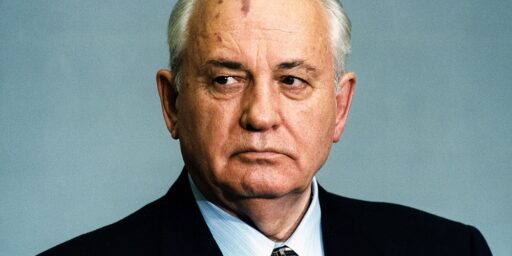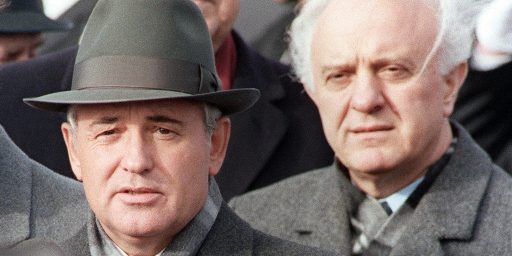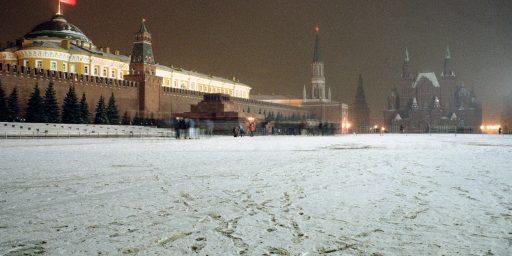In Memoriam: Boris Yelstin
Via the BBC: Russian ex-president Yeltsin dies
Boris Yeltsin, who oversaw the Soviet Union’s demise and became Russia’s first president, has died aged 76, the Kremlin says.
Mr Yeltsin had a history of heart trouble, though the cause of death has not been announced.
While Yeltsin conjures jokes about too much vodka, the fact of the matter is that he was a key figure in the historical development of the Soviet and then Russian politics and to the international system as a whole.
Some key dates in Yeltsin’s career:
July 1990: Resigns from Communist Party
June 1991: Elected president of Russian republic (in USSR)
August 1991: Rallies citizens against anti-Gorbachev coup, bans Russian communist party
December 1991: Takes over from Mikhail Gorbachev as head of state
1992: Lifts price controls, launches privatisation
October 1993: Russia on brink of civil war, Yeltsin orders tanks to fire at parliament
December 1994: Sends tanks into Chechnya
June 1996: Re-elected as Russian president, suffers heart attack during campaign
1998: Financial crisis, rouble loses 75% of its value
December 1999: Resigns, appoints Vladimir Putin successor






Thanks in part to Yeltsin and his clique of advisors and cronies, the average Russian male’s life expectancy declined by over nine years from Soviet times, and the Brezhnev era is looked back on with great fondness — except in Chechnya, of course, where hundreds of thousands of formerly living people now look back on nothing at all.